Media Refuse to Ask Where the War on Terror Is Going
The death of Islamic State leader Abu Bakr al-Baghdadi should have been a good time for U.S. journalists to reflect on the 18-year-long war.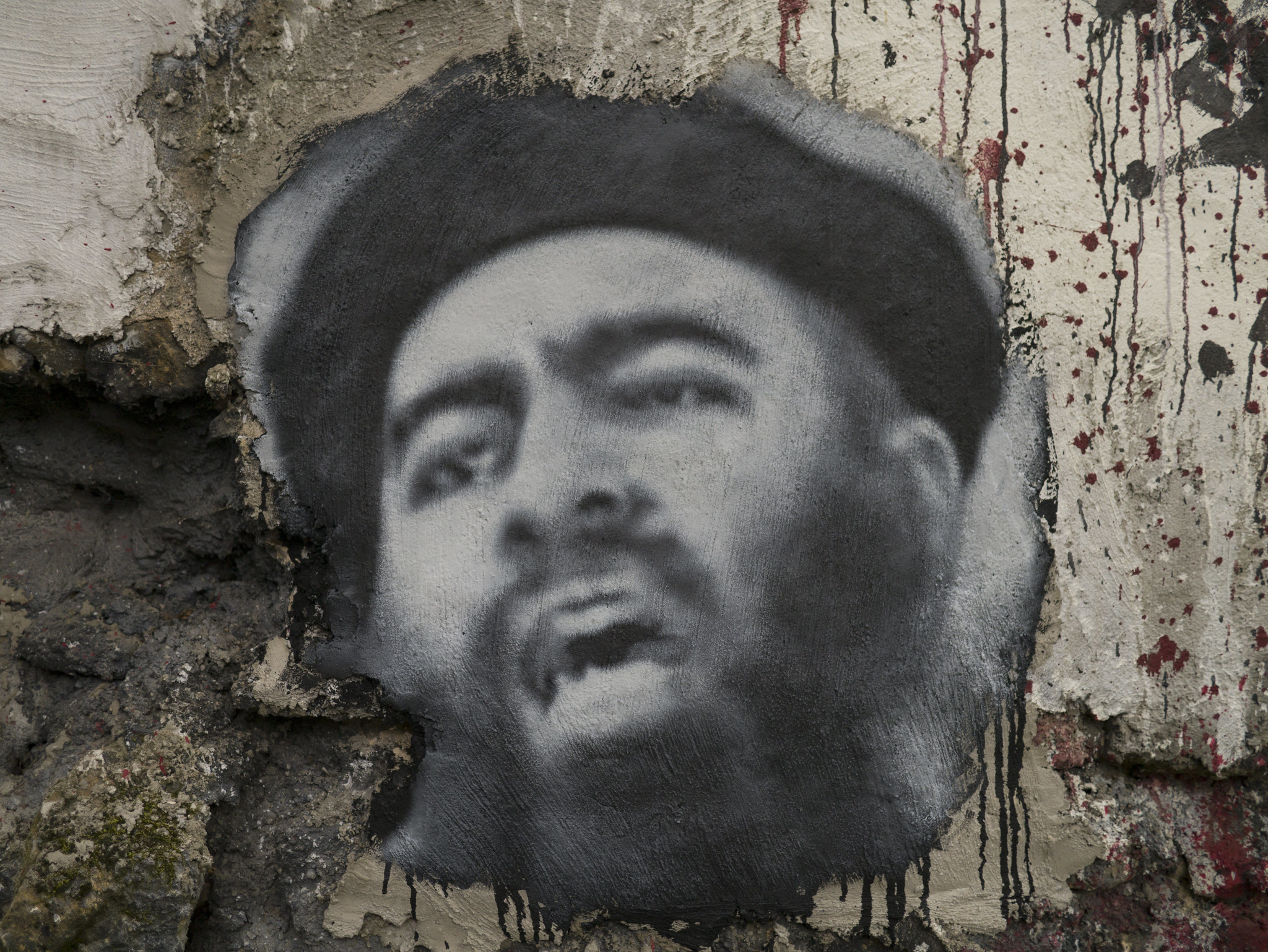 Flickr
Flickr
The death of ISIS leader Abu Bakr al-Baghdadi in October, during a raid by US special forces in Syria’s Idlib province, would have been an opportune time for US media to reflect on the 18-year-long “War on Terror,” and US policy more broadly in the Middle East. But the circumscribed coverage of al-Baghdadi’s death represented yet another artful evasion of any critical discussion of imperial foreign policy.

Time (10/27/19) declared that “al-Baghdadi’s death is a crucial symbolic victory in the battle against the embattled terrorist group” and “a victory for the Trump administration.” The Associated Press’ report, “The Tip, the Raid, the Reveal: The Takedown of al-Baghdadi” (10/28/19), read like a Hollywood action movie treatment of the assassination raid, excitedly describing how “the night unfolded with methodical precision and unexpected turns,” presenting the “daring raid” as the “culmination of years of steady intelligence-gathering work.”
The New York Times (10/27/19) reveled alongside Trump in the “daring American commando raid” that claimed “a significant victory” in the “War on Terror,” and wrote how al-Baghdadi’s death could be “a signal moment in the generation-long war against terrorists as well as in Mr. Trump’s presidency,” because it “culminated” in the elimination of a “ruthless enemy.” To the extent the Times was critical of the operation, it echoed Democratic criticisms that Trump didn’t keep congressional leadership informed, questioned the veracity of Trump’s account of the raid before his death, or scolded him for not maintaining proper presidential etiquette by using “boastful and provocative language unlike the more solemn tone typically adopted by presidents in such moments.”
On the same day, the Times’s 3,000-word obituary (10/27/19) of al-Baghdadi described details of his life—including his brutal crimes, the significance of his claim to be restoring a theocratic “caliphate” through ISIS, and how his movement differed from Osama bin Laden’s Al Qaeda—all without explaining the US’s role in creating ISIS, or mentioning US assistance to its Al Qaeda rivals (FAIR.org, 3/21/16, 1/4/17). Nor did the obituary explore why people in the Middle East, like the “tens of thousands of followers” ISIS “electrified,” would seek to “take up arms” against US presence in the Middle East, which would mean examining US Mideast policy and the US’s own war crimes (FAIR.org, 9/11/19).

The Washington Post’s original headline for its obituary, “Abu Bakr al-Baghdadi, Austere Religious Scholar at Helm of Islamic State, dies at 48” (10/27/19), was widely derided because it could have been used to describe an academic who died in his sleep, as opposed to a violent guerrilla leader killing himself and his three children while being pursued by US commandos.
Like the Times, the Post downplayed the role US Mideast policy plays in inspiring animosity against the US; it said the US invasion of Iraq offered the things ISIS “needed most: a new cause and a fresh and nearly boundless source of recruits and arms,” but did not explain why US intervention—generally portrayed in the Post as benevolent and altruistic—would prompt such a response. It attributed ISIS’s success in seizing and holding “territory that would form the basis of a declared Islamic caliphate” to al-Baghdadi’s “canny pragmatism as a leader,” allowing him to “meld…a fractious mix of radical Islamist militants and former Iraqi Baathists.”
Why do radical Islamist militants want to attack the US, instead of countries like Costa Rica and Switzerland? Why would former Baathists, who weren’t sympathetic to any form of Islamism—despite popular narratives seeking to exonerate the US’s role in the rise of ISIS, based on Saddam Hussein’s 1993 Faith Campaign—want to join fanatics like ISIS? Could the Bush administration’s decision to disband the Iraqi army and render more than 500,000 well-armed and well-trained troops unemployed overnight be a reason why many former Baathist military leaders have leading roles in ISIS (Time, 5/29/15; Intercept, 1/29/18)? The Post gave no answers to these kinds of critical questions.
The Wall Street Journal’s report on the raid (10/27/19) also triumphantly described al-Baghdadi’s death, describing it as “fulfilling a long-held US goal and marking the most significant setback for the militant group since losing the last of its territorial caliphate earlier this year.” The Journal’s accompanying obituary (10/27/19) also downplayed the US role in creating ISIS—omitting, for example, the US decision to dissolve the Iraqi military. It also obfuscated US support for Al Qaeda fighters opposed to the Syrian government (misleadingly referred to as “moderates” or “rebels” throughout corporate media), when it discussed how al-Baghdadi helped “establish an Al Qaeda affiliate called Nusra Front in 2012,” and later managed to lure “most of Nusra’s foreign fighters to Islamic State,” without mentioning this important fact.

Fox News (10/27/19) exemplified the vapidity of hyperpartisan journalism by immediately emphasizing the political benefits the death of al-Baghdadi would offer the Trump administration as the impeachment process began. Instead of giving facts about the mission, or raising questions about the continued War on Terror and how the US contributed to al-Baghdadi and ISIS’s rise, Fox tried to play “Gotcha!” by contrasting Washington Post coverage of Osama bin Laden and al-Baghdadi’s deaths, as well as citing how House Speaker Nancy Pelosi and other Democrats lavished praise on Barack Obama after his assassination of bin Laden, “while pointedly avoiding complimenting the president in any way.” Is the degree of adulation accorded presidents for killing foreign leaders really the most important issue to be addressed?
Matt Taibbi (Rolling Stone, 10/28/19) articulated the problem with our broken media’s tunnel-vision emphasis on the political benefits for the two major parties, at the expense of all other considerations:
This ought to have been a moment to reflect on what’s happened in the last 20 years, and if our policies across multiple administrations have been the right ones. Would we even be launching operations against such a person if we hadn’t invaded Iraq all those years ago? What’s the endgame? What do the people of the region think?
It’s telling that one of the few questions corporate media raised about the raid was to criticize the Trump administration’s subsequent, largely imaginary “pullout” from Syria, further reinforcing the notion that the US has the right—and even obligation—to illegally invade and occupy Middle Eastern nations (FAIR.org, 10/18/19). Despite reporting on al-Baghdadi’s time in US captivity in Camp Bucca, corporate media obituaries omit that eight out of the ten months al-Baghdadi spent in US captivity were at the notorious Abu Ghraib prison (Intercept, 8/25/16). Both US prisons were notorious for being sites of brutal torture, as well as for being “jihadi universities” that ISIS members actively infiltrated to recruit and train new members; al-Baghdadi connected there with the jihadists and former Iraqi military officials who would later make up ISIS’s leadership. Yet these pertinent details of al-Baghdadi’s biography weren’t used to question the US’s continued presence in the Middle East.
Despite lies from US Iraq War architects claiming to be “surprised” by the lengthy violent insurgency erupting from Iraq after the illegal invasion, prewar assessments by the CIA and the National Intelligence Committee warned the Bush administration that the invasion would result in a deeply divided Iraqi society prone to violent conflict, with increased sympathy for terrorist objectives (New York Times, 9/28/04, 10/13/05). The destabilization and power vacuum following the invasion is what allowed ISIS to rise, making ISIS an indirect US creation, and a fulfillment of Osama bin Laden’s objectives behind the 9/11 attacks (Extra!, 7/11; CounterPunch, 9/19/14; Guardian, 7/6/16).
A 2004 Defense Science Board Task Force report concluded that “Muslims do not ‘hate our freedom,’ but rather, they hate our policies.” Indeed, US officials have known for more than half a century that US Mideast policies engender hatred against the US, and consciously pursued them anyway. In 1958, Dwight Eisenhower noted to his staff that there “is a campaign of hatred against us, not by the governments, but by the people,” with his National Security Council later noting that “the majority of Arabs” (labeled “Arab nationalists”) believe that the US is “seeking to protect its interest in Near East oil by supporting the status quo and opposing political or economic progress.” The NSC paper explicitly noted that the US can’t afford to “accommodate” the demands of “Arab nationalists,” because of the “disparities between our interests.” The paper foresaw the “probable necessity of continued deployment of troops in the Near East, with the likelihood of increasingly serious incidents and the resultant risks of war.”
Just as the US cultivated Osama bin Laden and the mujahideen fighters in the 1980s to fight against the Soviet Union in Afghanistan, a 2012 Pentagon report predicted and even welcomed the possibility of a “Salafist principality” (Salafism being ISIS’s official ideology), because it hoped an organization like ISIS would lead a violent insurgency to weaken the Syrian government (Salon, 11/18/15; Guardian, 6/3/15).
Corporate media can’t bring themselves to mention this information in their coverage of al-Baghdadi’s death, or of the endless wars in the Middle East. Informing their audiences of the possibility that US officials are consciously endangering Americans by cultivating and sponsoring terrorist groups, or that aspects of US foreign policy can qualify as terrorism, would endanger US imperialism, the military/industrial/media complex and the entire basis for this so-called “War on Terror” (Extra!, 8/05; FAIR.org, 3/13/19).
Your support matters…Independent journalism is under threat and overshadowed by heavily funded mainstream media.
You can help level the playing field. Become a member.
Your tax-deductible contribution keeps us digging beneath the headlines to give you thought-provoking, investigative reporting and analysis that unearths what's really happening- without compromise.
Give today to support our courageous, independent journalists.
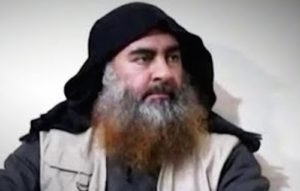
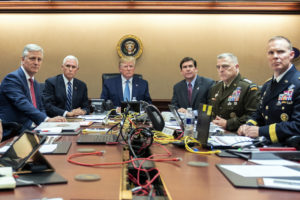
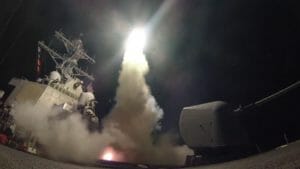
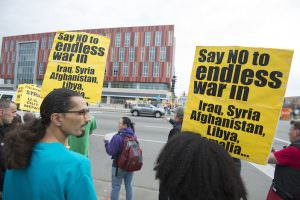

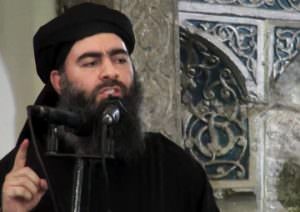
You need to be a supporter to comment.
There are currently no responses to this article.
Be the first to respond.